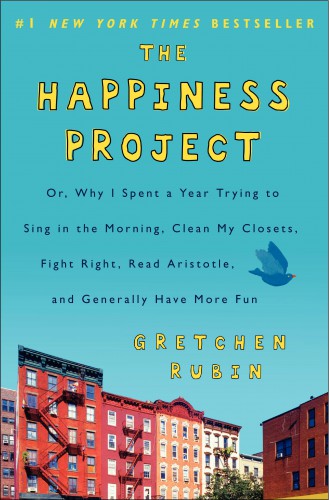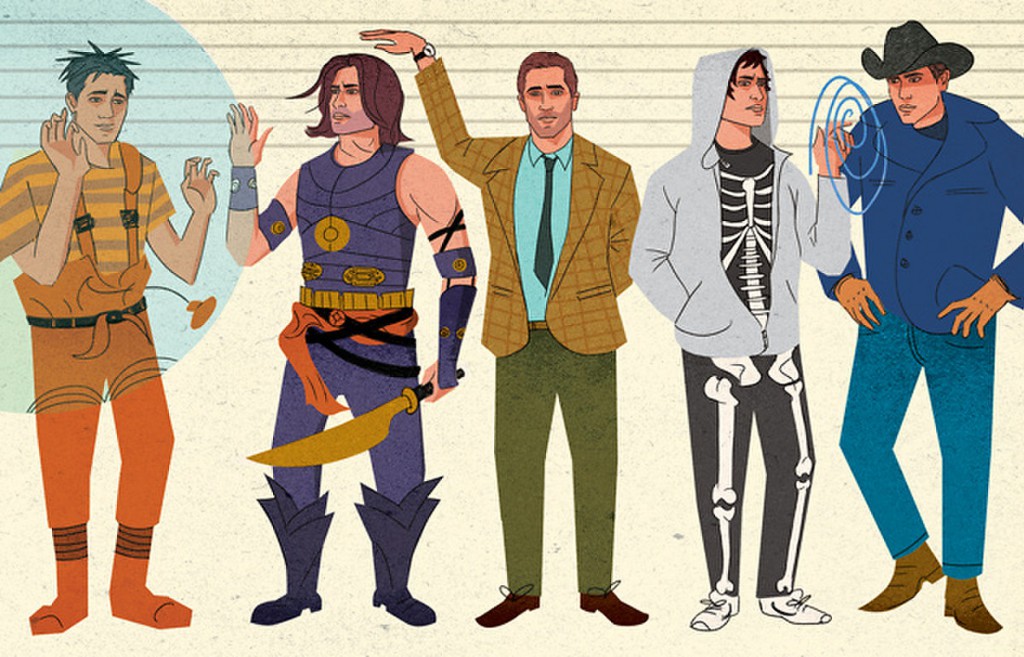
I recently went back to work (does one day a week count as going back? I say YES!) and, with a thirty-minute-minimum commute each way, wondered how to make the most of my hour spent in the car. I wanted to use the time effectively–productively, even–because, as a parent of young kids, I look at blocks of alone time much like Gollum looks at the ring.
 After completing and singing the praises of Serial, I searched for another podcast that could fill my commute and leave me more informed than when I ambivalently climbed into the car that morning, tears both blurring and sharpening the vision of my three-year-old watching through the window as my car backed away. I scanned the Top Charts section, because I’m nothing if not a follower, and downloaded a few episodes of some titles that caught my eye. Then I settled in for some traffic and learning.
After completing and singing the praises of Serial, I searched for another podcast that could fill my commute and leave me more informed than when I ambivalently climbed into the car that morning, tears both blurring and sharpening the vision of my three-year-old watching through the window as my car backed away. I scanned the Top Charts section, because I’m nothing if not a follower, and downloaded a few episodes of some titles that caught my eye. Then I settled in for some traffic and learning.
And some law and grace.
Happier with Gretchen Rubin stood out to me both because I had heard of (and picked up…and returned to the shelf of Target) her book of a similar name, and because…well, who doesn’t want to be? Happier, that is. Being a lifelong fan of lists (and a recovering law addict–Hello, my name is Stephanie and I’m a performaholic), I was drawn to the DIY-friendly words in her podcast description like project and habits. My inner sense of control leapt at the idea that happiness, that ever-elusive first-world ideal, was only beyond my reach if I didn’t try hard enough. Never mind that my inner control freak has been on death row for years now; it keeps getting stays of execution, and this podcast appeared to provide one.
I downloaded a couple of episodes of another podcast that was highly ranked, Mystery Show. Its description? “A new podcast about mysteries.” Ooh, I thought. Mysterious! Because, despite that need for control, I’m also drawn to what won’t submit to my puppeteering: to the unexplainable and disobedient (to my will) forces of the universe that I like to sum up with the word God. But I especially like mystery when it’s contained within a two-hour movie or 300-page book or, it seemed, thirty-minute podcast. You know–safe, bite-sized amounts. So with both of these shows waiting on my iPod, I kissed the family goodbye and headed to work.
 I listened to Happier first, presumably hungrier for smiles than head-scratching, and found that it was full of my former loves: instructions, advice, tips, lists–handily divided into sections like “Stumbling Blocks” and “Happiness Demerits.” The entire show was about procurement: follow this path and it will lead to your ideal life! Stop or start doing! ACTION VERBS! But instead of leaving me inspired and motivated, the words rang hollow. I felt like I had just binged on Joel Osteen’s entire library and was left with nothing but pseudo-spiritual gas. This was law should-ing all over me, and rather than pushing me closer to “happiness” (which I was beginning to suspect was an imposter of a word for something more meaningful), it made me want to take a spiritual shower and climb into bed. When Rubin described herself as a “happiness bully,” I took my leave and pressed Delete.
I listened to Happier first, presumably hungrier for smiles than head-scratching, and found that it was full of my former loves: instructions, advice, tips, lists–handily divided into sections like “Stumbling Blocks” and “Happiness Demerits.” The entire show was about procurement: follow this path and it will lead to your ideal life! Stop or start doing! ACTION VERBS! But instead of leaving me inspired and motivated, the words rang hollow. I felt like I had just binged on Joel Osteen’s entire library and was left with nothing but pseudo-spiritual gas. This was law should-ing all over me, and rather than pushing me closer to “happiness” (which I was beginning to suspect was an imposter of a word for something more meaningful), it made me want to take a spiritual shower and climb into bed. When Rubin described herself as a “happiness bully,” I took my leave and pressed Delete.
Then my spiritual Silkwood shower showed up.
A couple of minutes into Mystery Show, my finger hovered over the delete option again. Starlee Kine, the host of the show, had an odd name and a childlike voice. And the subject matters–disappearing video stores and a book written by Kine’s friend that landed in Britney Spears’ hands–felt like trifles after Serial and, say, Louis CK’s talk with Terry Gross. But there was something about Kine’s approach that kept me hooked. For one thing, this was not a sectioned rundown of bullet points and self-help lists; it was a narrative. Each self-contained episode followed a tale filled with characters and story. Kine’s interviews would unfailingly veer off-subject: the ticket-company customer-service rep who, with Kine’s prodding and participation, mused about his self-worth; the bookstore worker who discussed her need for independence. Kine was fine (see what I did there?!) with these time-consuming detours into humanity–even as I silently willed her back on-topic, annoyed by the forays until I realized they were the real substance of the episodes. The mysteries weren’t remarkable; the people were. And the mysteries were the vehicle for them.
Our culture vacillates between such extremes of consumption, fueled by entitlement, and action, fueled by a need to prove ourselves. Rubin’s podcast fit right into that Westernized paradigm of “I deserve what I work for, and I will get it.” It’s the ceaseless circularity of the hamster wheel, recently covered in-depth by the Atlantic article “All the Happy Workers.” William Davies posits that a great threat to capitalism is lack of productivity due to apathy; in response, managers are focused on workers’ well-being with the end goal being…productivity! Happiness for the sake of income generation. Davies, who wrote a book called The Happiness Industry, cites the presence of “workplace happiness gurus” whose job it is to engage the workforce–and fire those who don’t play along. Now the employee AND his happiness are cogs in the wheel of productivity: the commercializing of feelings for profit margins.
“As the physical and the psychological character of work—and of illness—start to blend into each other, notions of health, happiness, and productivity become ever harder to distinguish from each other.”
And then, for the love of all that’s (not) holy, there’s this chart-wielding, list-busting abomination from Time about the science of happiness (complete with flowchart and 15 tips!). It even profanes the work of Brene Brown by turning it into a pithy suggestion. Just scrolling through the illustrations makes me want to take a nap.
Which returns me to the idea of happiness being an imposter. What does that word really mean, after all?
I’m convinced that when we say we want to be happy, what we really mean is that we want life to go smoothly for us. We want things to be easy. Which is in direct conflict with our simultaneous desire to lead meaningful lives, because if there’s anything believers should know (and Westerners have forgotten), it’s that life often comes from struggle (a form of death!); that strength can appear as weakness; that victory often looks like failure. Which all sounds strangely like a mystery.
 Happiness is really shorthand for a form of deep joy and meaning independent of circumstance. It’s how we say religion when what we mean is gospel. It’s not to be found through clamoring, it annoyingly doesn’t follow the laws of entitlement or consumption, and it rarely occurs unmarried from difficulty. Joy and pain, everyone from Henri Nouwen to Rob Base tells us, are two sides of the same coin; more conjoined siblings than arch-nemeses. And that strange alchemy between them is the mystery behind all that matters in life. “Mystery is not that which is not knowable,” Richard Rohr says. “It is that which is endlessly knowable.” And that mystery rests safely beyond our illusions of control and grasping hands.
Happiness is really shorthand for a form of deep joy and meaning independent of circumstance. It’s how we say religion when what we mean is gospel. It’s not to be found through clamoring, it annoyingly doesn’t follow the laws of entitlement or consumption, and it rarely occurs unmarried from difficulty. Joy and pain, everyone from Henri Nouwen to Rob Base tells us, are two sides of the same coin; more conjoined siblings than arch-nemeses. And that strange alchemy between them is the mystery behind all that matters in life. “Mystery is not that which is not knowable,” Richard Rohr says. “It is that which is endlessly knowable.” And that mystery rests safely beyond our illusions of control and grasping hands.
After banning Happier from my playlist, I climbed into the car for my ride home from work and played an episode of Mystery Show called “Source Code.” This week’s question: how tall is Jake Gyllenhaal? I rolled my eyes at another example of useless information and wondered whether to move on to Stuff You Missed in History Class. But I kept listening as Starlee’s friend explained how this conundrum has engulfed the corners of the internet he has searched lately. It all culminated with a phone call to Starlee from Gyllenhaal himself. Their charming conversation, full of quick-witted banter and laughter, slayed my cynicism (not to mention my inner control freak) and left me grinning from ear to ear right there in I-285 traffic, a heretofore unheard-of phenomenon, unexpected and freely given–what some might call a mystery.


COMMENTS
5 responses to “A Tale of Two Podcasts”
Leave a Reply













Stephanie – Fantastic article. If you haven’t checked it out – Invisibilia is astonishingly good (particularly the early episodes) – https://itunes.apple.com/us/podcast/invisibilia/id953290300?mt=2
Thanks! I’ve listened to one Invisibilia episode (on fear, another of my first loves) and plan to download more for sure.
My favorite “Mystery Show” was the belt-buckle one.
Hans Jordi! I loved that one too!
I have adhd and if I stop using calendars, to do lists, and productivity tips then my life falls apart. I have toddlers as well which makes me feel even more adhd. Its the little things that destroy happiness. The law or in other words the wisdom of happiness can help regain control of an out of control life.